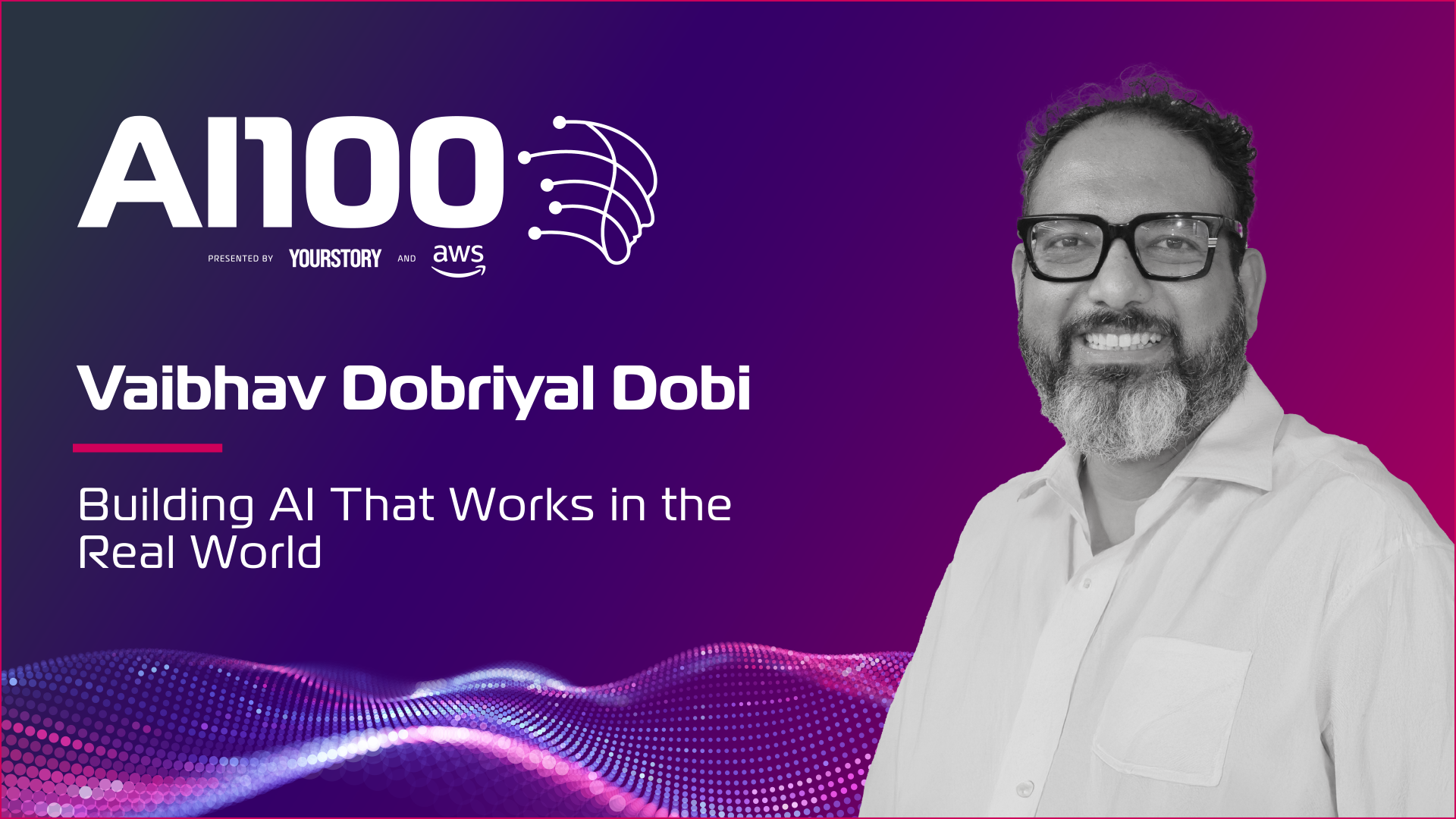By Kaveri Chandrashekar
Copyright yourstory

Dobi first encountered a curious term as a student in the early 2000s: neural networks. This complex web of algorithms would later power everything from recommendation engines to self-driving cars, but he didn’t pay it much attention then. He dismissed it—until 2013, when big-data analytics made its presence felt. At the time, data was “the new oil,” an opportunity to break through to bigger discoveries, while AI remained in a more embryonic state. Only later did Dobi and his colleagues realize the scale of disruption data and AI could bring. They were, as Dobi puts it, “innovating at the edge of what’s possible.”
His most formative lesson, however, came earlier—not in a lab, but in a theatre. During an academic research project at the Indian Institute of Technology Kanpur, he collaborated with a theatre chain in the Netherlands, applying optimization techniques to build schedules that boosted revenue. What stayed with him wasn’t just the thrill of solving the problem; it was the larger insight that even with constraints, intelligent design can unlock disproportionate value.
That lesson—the art of optimization under constraints—went on to shape his worldview as he ventured deeper into the evolving landscape of technology and AI.
“What was happening in the backend, though it wasn’t AI, was the creation of a mindset: we had technology, a business problem, and a goal—and we could use technology to solve it,” he says.
Looking back, he adds, this lesson wasn’t part of his curriculum, but it has influenced his entire career. “I believe technology exists to solve a particular problem, create solutions, and generate business value. So whether it’s AI, ML, deep learning, or even traditional statistics—none of that matters by itself,” he says.
Dobi is puzzled when people champion a particular technology and want to implement it everywhere. “The endgame is to solve problems. If a certain technology is more capable, efficient, and optimal, I’m happy to use it. The obsession with technology is fine—I’m a techie myself—but it’s a means to an end.”
Building Collaboration into the Code
In 2013, Dobi and Shoaib Mohammad founded LUMIQ in Noida, India, with a bold vision: tackling complex problems in banking and financial services through data and AI. A decade later, LUMIQ is a trusted partner to insurers, banks, and capital-markets firms, with solutions like the emPower Platform, PRYZM, and its latest innovation, LiteCone.
LiteCone is a suite of AI Virtual Employees powered by specialized language models and an agentic AI lifecycle platform. Designed to cut costs, enhance privacy, and scale in real time, LiteCone is reshaping enterprise operations. Among its standout AI workers is LEO, a virtual life-insurance underwriter.
For Dobi, LiteCone marks the next chapter in LUMIQ’s journey—bringing intelligence directly into enterprise workflows and redefining how data and AI create value. “With LEO, we quickly moved to a scenario where we delivered 99% accuracy and, at times, even outperformed human underwriters,” he says. “Rather than working on small chunks of the problem, we addressed them end to end—because that is the epitome of agentic AI today.”
Alongside LEO, LiteCone offers ARIS, a health-claims adjudicator; ERIC, a health underwriter; and ALEX, a credit underwriter.
Dobi has an interesting take on naming these virtual employees. “We named LEO because once you start calling someone by a name, you naturally begin to associate them with a personality—and that subconsciously makes you treat them like a human,” he explains. “And when you start seeing them as human, collaboration becomes instinctive.”
AWS: The Builder’s Paradise
LUMIQ’s partnership with AWS goes back nearly a decade, built on a shared philosophy of customer obsession and outcome-driven innovation. Where AWS champions its “working-backwards” approach, LUMIQ embraces an “implementation-first” mindset—two sides of the same coin that laid the foundation for a long-term collaboration.
For Dobi, AWS has always been a builder’s paradise. LUMIQ was among the early adopters of cloud computing, choosing AWS for its openness, reliability, and roots in Amazon’s battle-tested technology. That trust has evolved into a deep partnership, particularly in data and AI.
Today, LUMIQ leverages services like Amazon SageMaker (Unified Studio), Amazon Bedrock, and more to power solutions for customers. The pragmatic approach resonates most.
“There won’t be one model or LLM to rule them all. Models will become a commodity. What matters are the principles, the platform, and the way the organization is run—and that’s where AWS has been a perfect fit for us.”
In the current AI landscape, Dobi sees two kinds of innovators: those who add an incremental, siloed intelligence layer on top of existing processes, and those who build verticalized, specialized skills to solve real-world problems. He believes the future belongs to the second group. “Even if they haven’t figured out the right recipe yet, they’ve got the fire going. It’s just a matter of a few iterations. Everyone has access to the same tools; what you make of them makes all the difference,” he says.
Life Outside Work
In his spare time, Dobi’s interests lean toward the creative arts. He is a voracious reader of Hindi prose and poetry, and he listens to Indian classical, rock, jazz, and Western classical music. Born and raised in the Garhwal region of Uttarakhand, he finds solace in the mountains, often hiking for serenity and solitude. When he has a moment, he spends it in silence—with a coffee or a view for company.
Amid lightning-fast developments in AI and technology, collecting knowledge can feel overwhelming—even fruitless. “Too much information about AI is readily available. What works for me is identifying patterns and building a unique point of view,” Dobi says. He prioritizes conversations with industry leaders, peers, and partners, and participates in AI forums. Medium still surprises him with the quality of its content. LUMIQ’s internal team also continuously synthesizes critical information, sharing it through chat groups and spontaneous brainstorming sessions.



